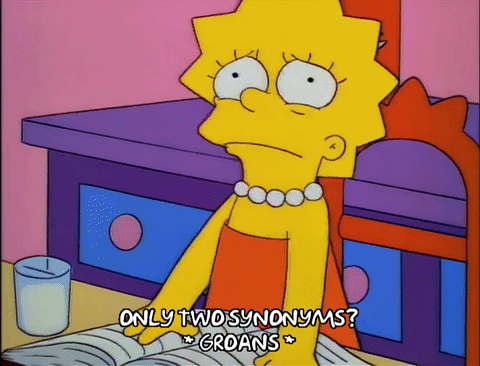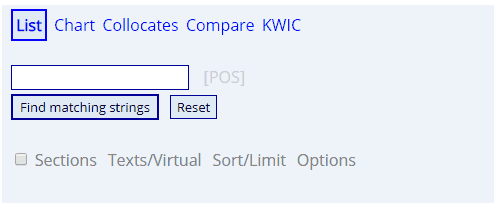When it comes to writing, every word has an impact and brings meaning along with it. In our assignments, our job is to take these different meanings and weave them together to be clear, engaging, and provide information to our audiences. Yet, when we get stumped or feel like our work is getting too repetitive, we turn to Google or Microsoft Word to help find synonyms. Sometimes this can work wonders, but other times it can have negative repercussions.

Using synonyms for good:
Don’t get me wrong, synonyms are useful tools that can improve your assignments. The key is, you have to use them correctly.
Synonyms can help with:
- Avoiding constant repetition
- Providing more imagery to the reader
- Being more precise with language
A series of unfortunate mistakes:
When it comes to academic writing, students often feel like they need to pull out all the stops and use flashy words to capture the attention of their audience. But placing synonyms where they don’t belong can lead to two common mistakes:
- Overdoing it: ever heard the saying, “too much of a good thing, isn’t good anymore?” When you use too many synonyms, you start to lose clarity in your work. Sometimes using simple language is the way to go.

Example:
|
Original sentence with synonyms |
Simplified sentence |
|
The periods altered hastily in the historical scarce cycle. |
The seasons changed rapidly in the past few months. |
The original sentence littered with synonyms shows that it’s difficult to comprehend a series of complex words thrown together with no clear relationship. It just becomes a lot of big words with no real substance to it.

- Wrong connotation: using the wrong synonym can change the meaning of the sentence entirely, especially since each word you add comes with its own set of connotations and associations attached. Being aware of this can help you avoid making an error.
Example:
|
Sentence |
Word |
Definition |
Meaning |
|
It’s challenging to understand the intent of the author. |
Challenging |
Testing one’s abilities; demanding |
It really tests your ability to understand… |
|
It’s stimulating to understand the intent of the author. |
Stimulating |
Encouraging interest or enthusiasm |
It intrigues you to understand… |
On the surface, it might seem like the word works well in each sentence, but when you take a closer look, you can see a significant difference. It’s important to understand the sentiment and tone that each word is trying to convey. Both words make sense in a particular context, but in this case, they don’t work for the same one.
|
Tip: never replace a technical term with a synonym. Example: You can’t replace the term ‘carbon footprint’ with ‘carbon impression’ or ‘carbon trace’ because it loses its initial meaning. |
|---|
Taking a second look:
Keep in mind that when using synonyms, you need to make sure they fit in with your work. It’s tempting to add in a word that seems fancy and advanced, but it can cause trouble if you’re not entirely sure what it means.
There are two ways you can double-check if a synonym works for you:
- Corpus Contemporary American English: this site allows you to check how the word is used in a variety of different contexts, so you can implement it into your work.
- To use the site, first enter the word you want to use into the search bar. Next, click the ‘find matching strings’ button.
- Under the heading, ‘context’ click the word again and it will take you to another page.
- Here you will find a list of different contexts the word and examples of how it is used in sentences.

- The English dictionary: by simply searching up the word and gathering intel on it, you can make a decision on whether or not to add it to your paper. Find a hard copy at on-campus libraries, a digital copy at the library’s online reference shelf or the Oxford English Dictionary website, or download an app on your phone.

-
For additional help with synonyms, visit The Write Spot, come to drop-in hours, or book an appointment through WCONLINE.